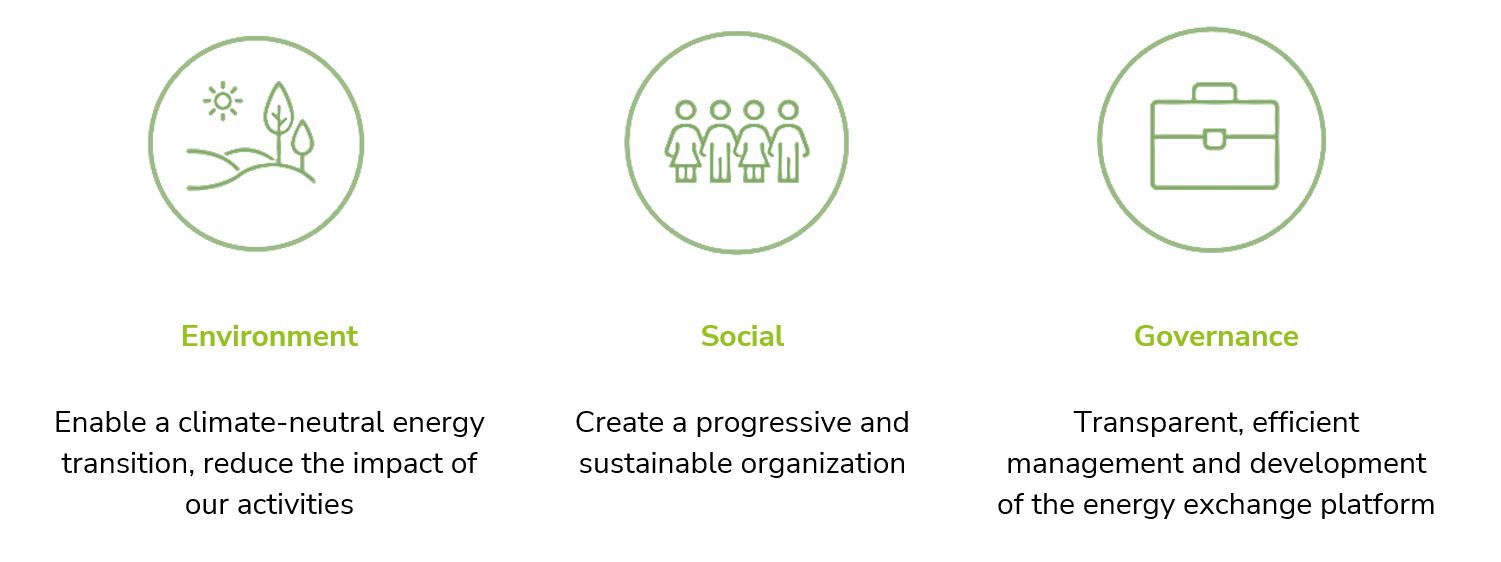About us
Sustainability directions
EPSO-G has set three long-term directions in the areas of environment, social and economic performance in respect to relevant SDGs:
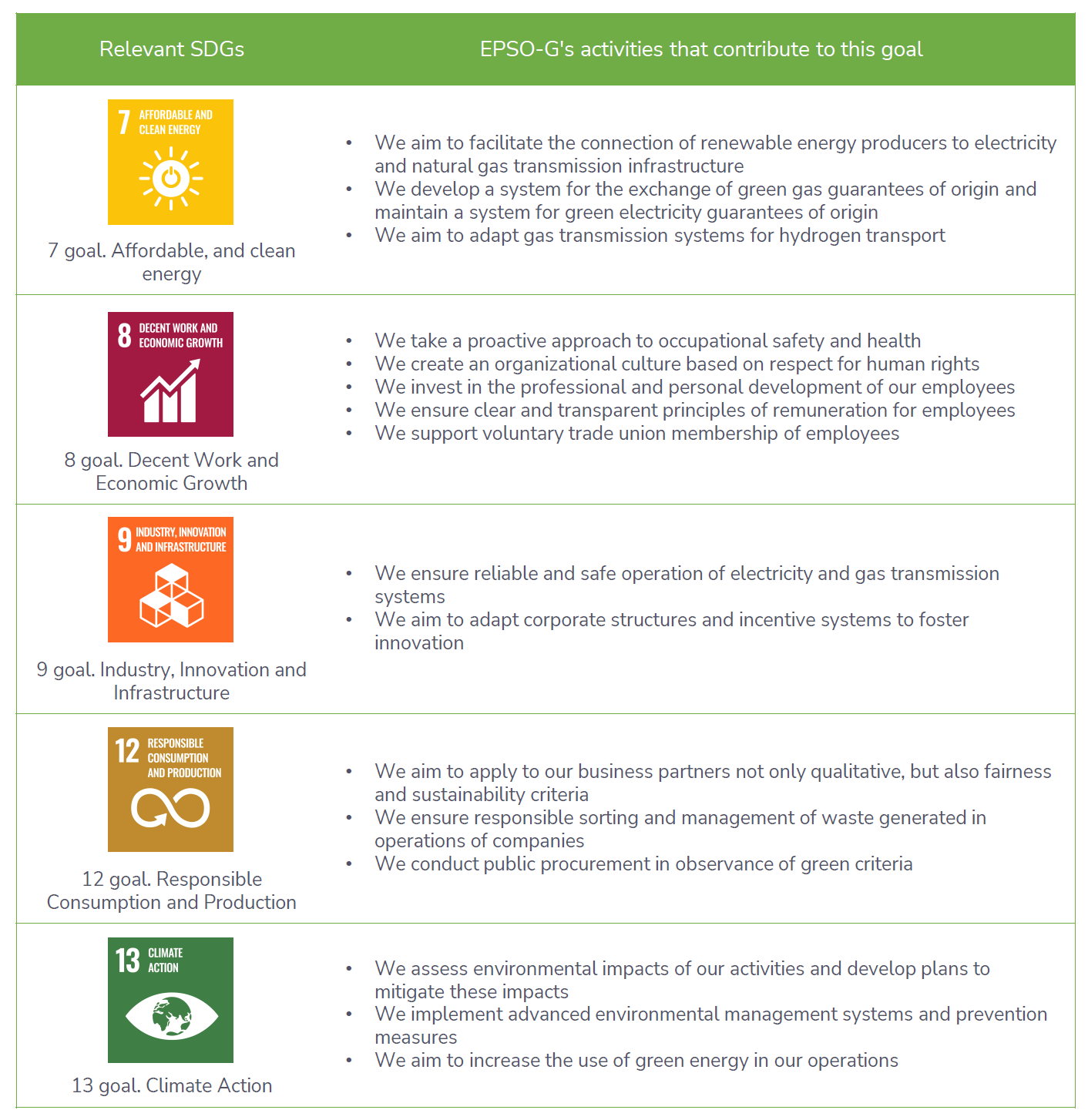
Material topics
In 2022 EPSO-G made a materiality analysis of all topics relevant to the companies' activities and stakeholders. 645 respondents took part in the survey, including company employees, suppliers, customers, business partners, local communities, associations, trade unions, the Ministry of Energy, managers, and board members.
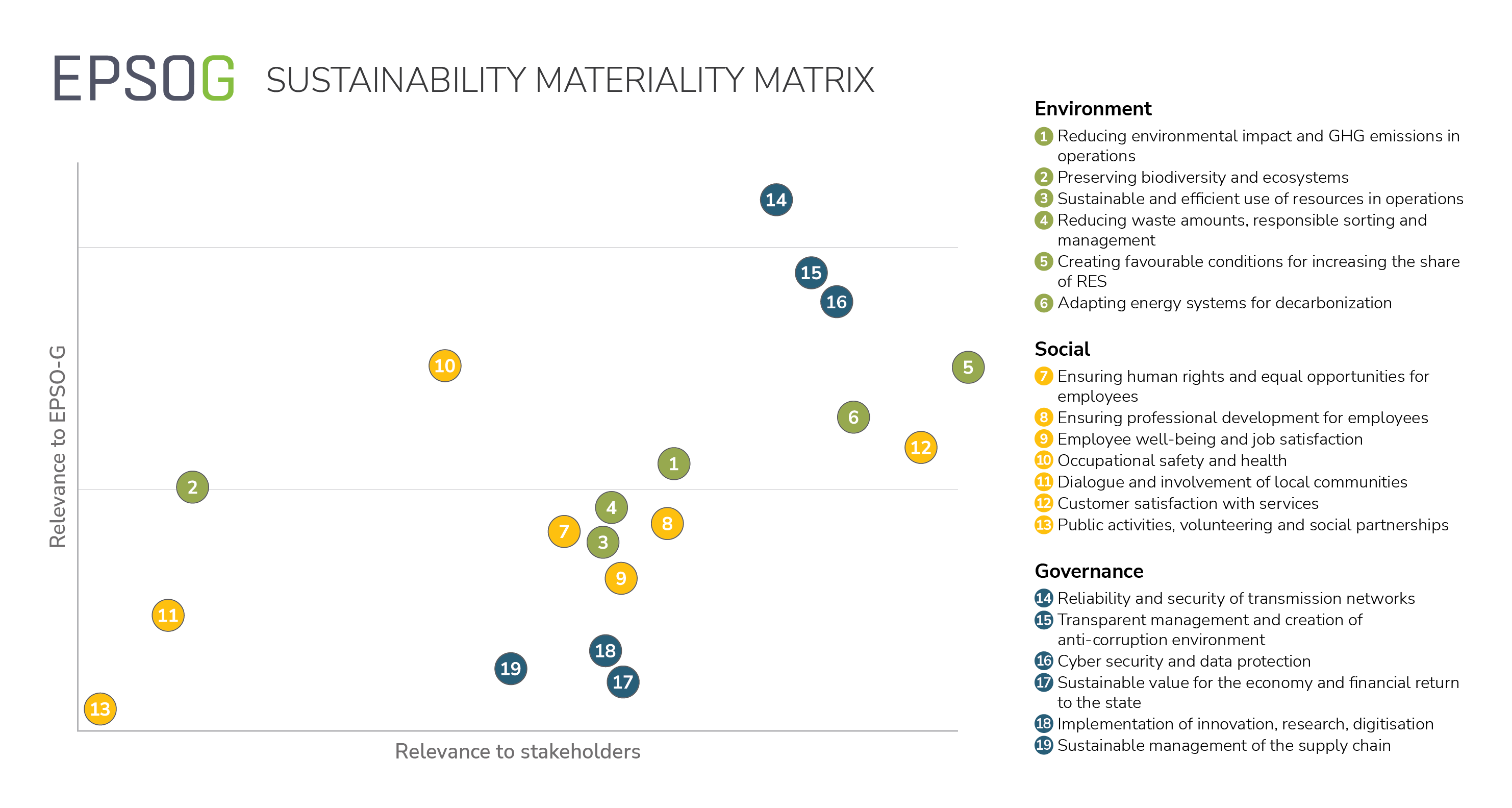
Long-term sustainability goals and results
For each long-term sustainability direction, EPSO-G has set specific targets and indicators to measure the progress of sustainability.
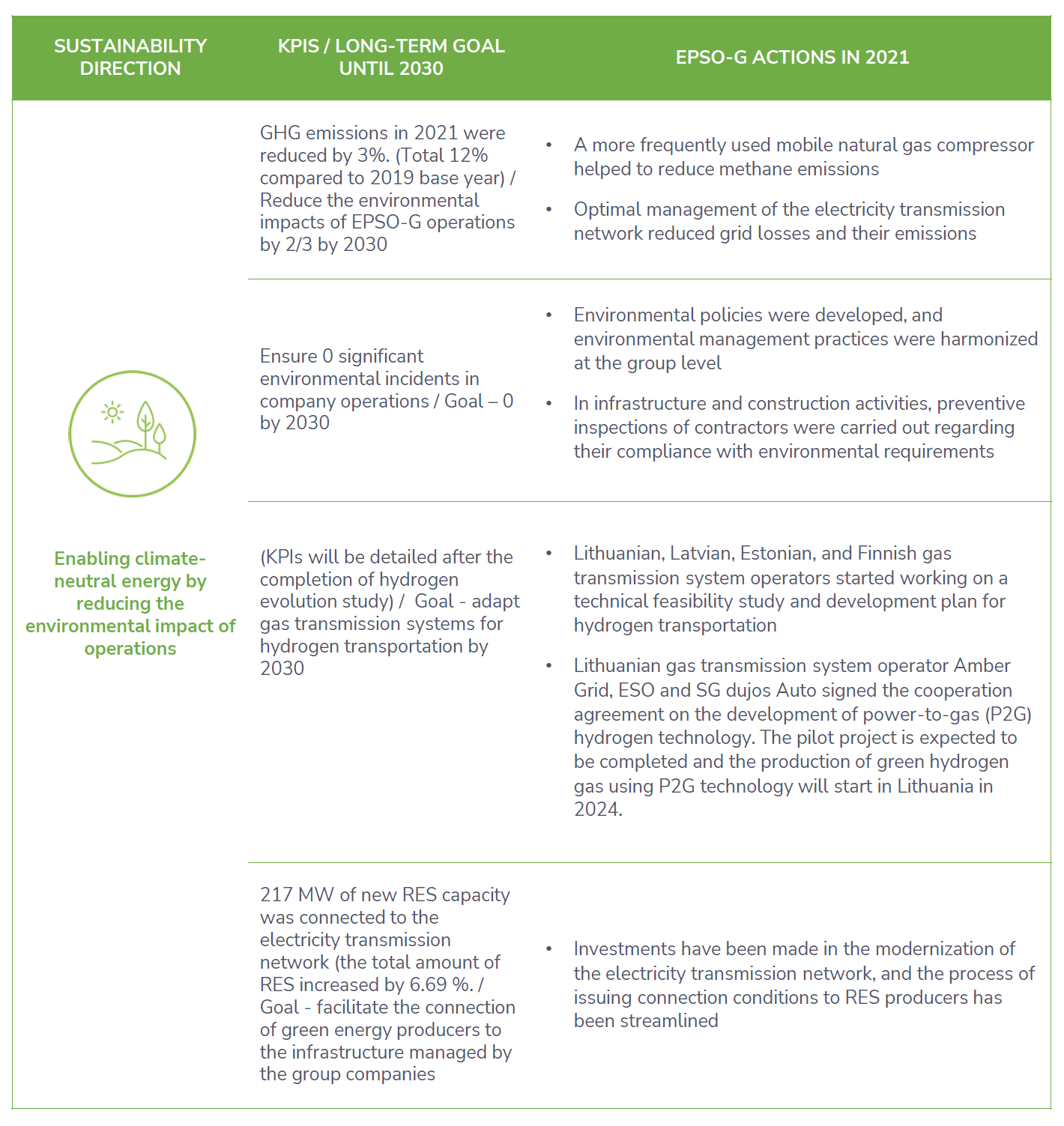
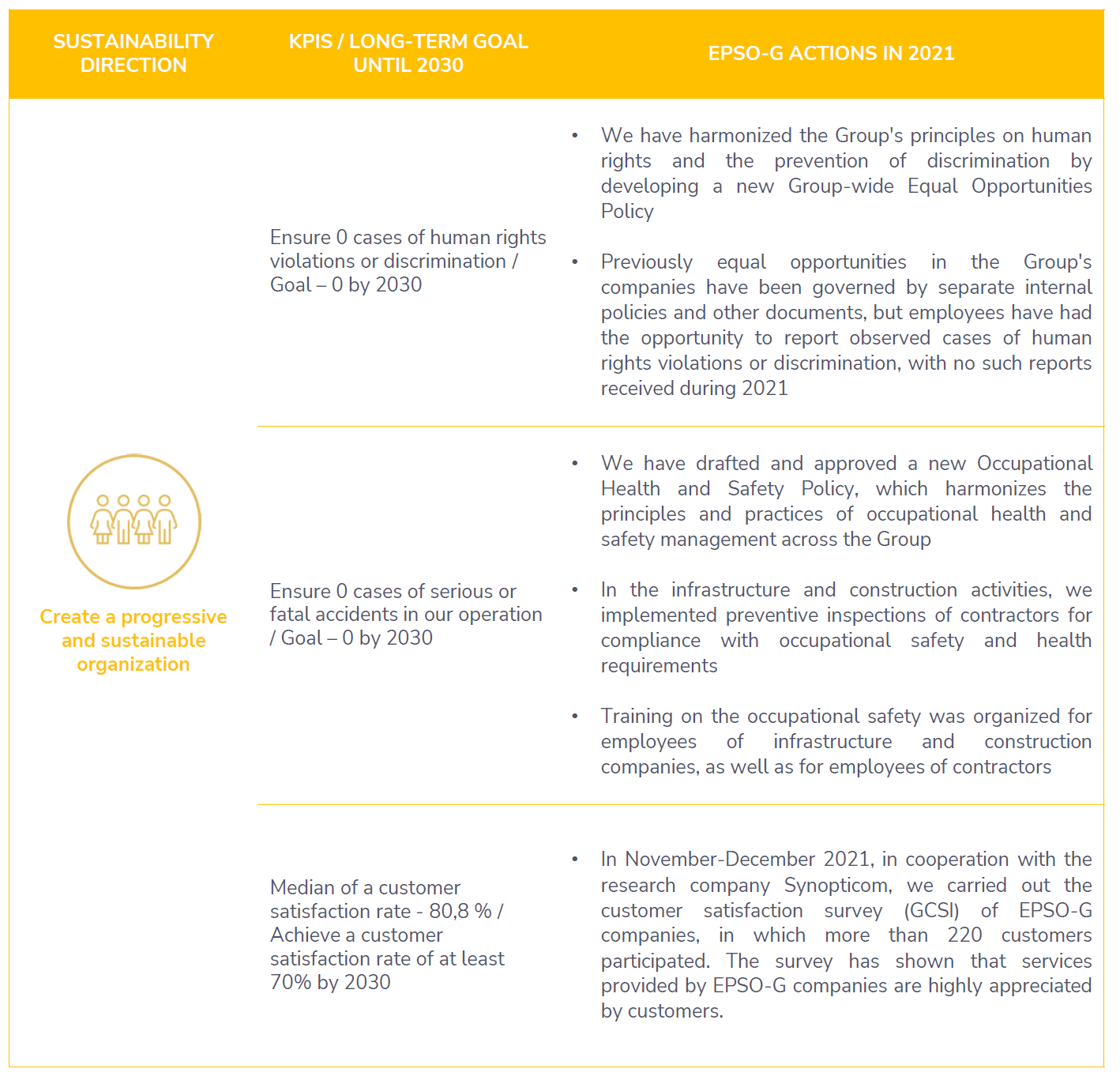
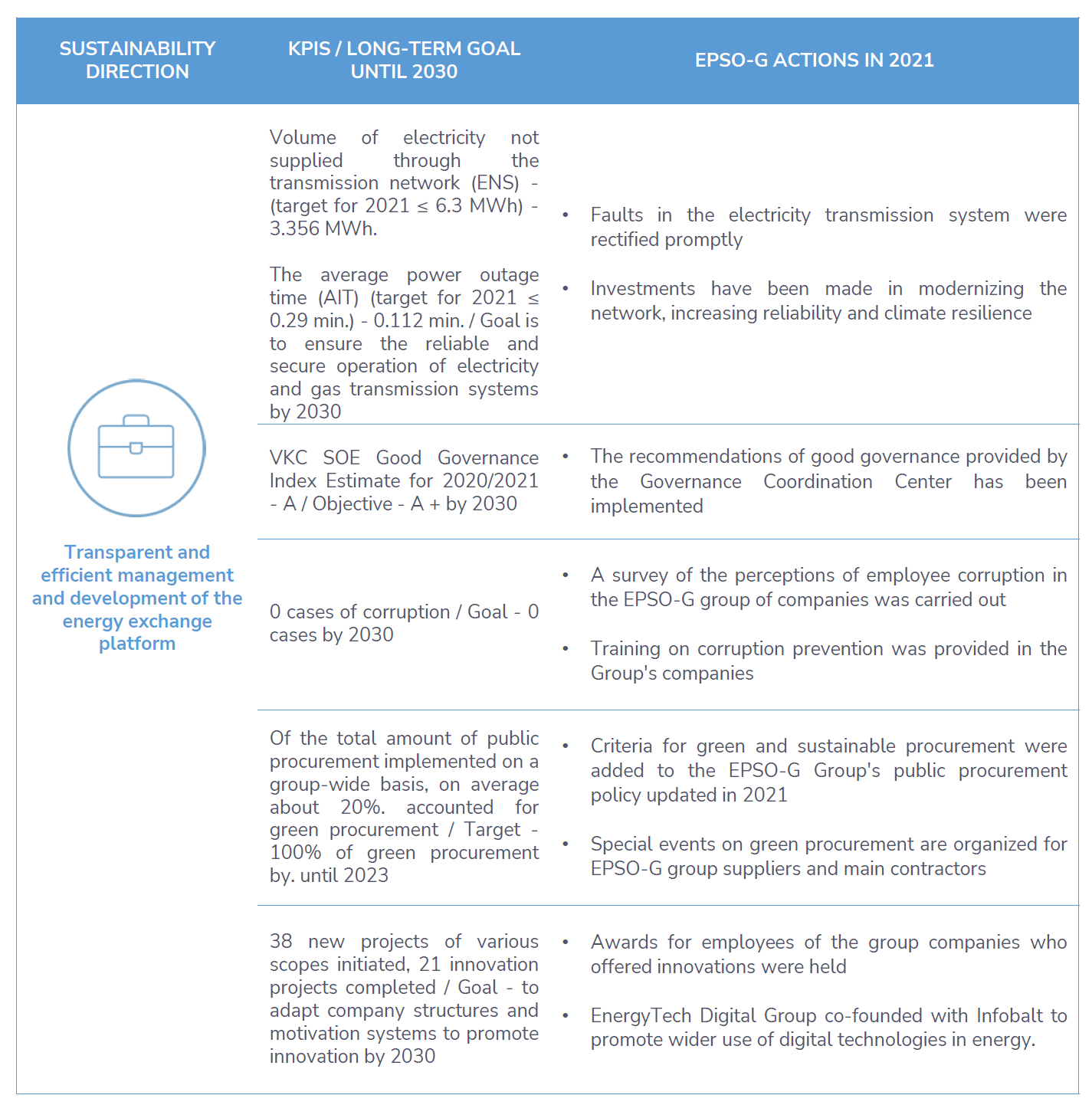
Sustainability governance
EPSO-G supports good corporate governance by basing its work on the guidelines laid down in the Ten Principles of the UN Global Compact, OECD’s Good Practice Guidance, the Nasdaq Baltic Stock Exchange, and the Guidelines for Ensuring Transparency in the Operations of the State-Owned Enterprises approved by the Government of the Republic of Lithuania.
The Board oversees the implementation of EPSO-G’s long-term strategy, sustainability obligations, risk, and performance. The foundation of EPSO-G’s sustainability activities is the Sustainability Policy, which provides guidelines for environmental and social issues, human rights, labour relations as well as transparency. It is further based on EPSO-G’s vision, mission and values and it is fundamental in steering the entire group towards sustainable development of its operations. The main directions of the governing principles of sustainability and ESG management are set in EPSO-G’s Sustainability Policy that apply to all companies of the group.
The principles of sustainability are implemented based on the related EPSO-G policies and other valid internal documents:
- Environmental Policy. This policy defines the key principles in the field of environmental protection, which shall be applied within the group to reduce the environmental impact of the activities carried out and to implement a culture based on the principles of sustainable development within the group and its environment.
- Equal Opportunities Policy. This policy defines the key principles applied in the group’s companies to ensure that principles of equal opportunities and non-discrimination are respected in all areas of the employment relationship.
- Remuneration, Employee training, and Performance Review Policy. This policy is intended to properly manage wage costs, create motivational incentives, and to ensure proper personal and professional development, as well as a transparent performance review system, for all employees.
- Occupational Health and Safety Policy. The policy is aimed at ensuring the health of employees in the workplace and creating a healthy, safe, and productive working environment.
- Transparency and Communication Policy. The policy is aimed at fostering fair and efficient communication with each other and with the external stakeholders, i.e. society, shareholders, market regulators, etc.
- Anti-Corruption Policy. The policy sets the Group's anti-corruption principles, the roles of the entities involved in anti-corruption activities, and the anti-corruption measures implemented to create a corruption-resistant environment within the Group.
- Interest Management Policy. The policy is intended to create an interest management system that is consistent with the common good practice, ensuring that decisions in the companies of the group are made in an objective and impartial manner. It also forms an environment that is unfavourable to corruption.
- Donations Policy. The policy is intended to ensure that the donations provided are public, cast no doubt in the society regarding its expediency and transparency of the granting process.
- Procurement Policy. The policy aims to follow good procurement practices of international organisations, the institutions of the European Union and other contracting authorities and contracting entities. It ensures an efficient, dynamic and transparent procurement process, creating added value for the achievement of the goals of EPSO-G’s group companies.
- Code of Conduct. The code aims to set the same general guidelines of behaviour for communication and cooperation with internal and external stakeholders: employees, customers, contractors, business partners, shareholders, national and municipal authorities, society, etc.
- Supplier Code of Conduct. The code aims to define the minimum standards of EPSO-G Group expecting that all Group’s Suppliers and Sub-Suppliers conduct with, thereby promoting legal, professional, coherent and fair business practices that include the objectives of environmental protection, human rights, labor standards, and business ethics.
Stakeholders
EPSO-G group assesses and seeks to take into account the social and economic interests and expectations of the stakeholders when implementing its strategy objectives.
Each direction of EPSO-G strategic activities is related to one or several stakeholders. The official, partnership or consultative contacts are maintained with the groups or individuals who express their interest in the activities carried out by EPSO-G group. The stakeholders are provided with comprehensive information related to the activities carried out by the group.
Main stakeholders:
- Clients
- Employees
- Labor unions
- Shareholders
- Foreign partners – the operators of energy transmission and biomass exchange
- National Regulatory Authority
- Local communities
- Contractors and suppliers
- NGOs
- General public and media
The ways we cooperate and inform our main stakeholders are explained in the stakeholder engagement report.
Sustainability Reports
EPSO-G’s Progress Report on Sustainability follows the principles of the UN Global Compact and in accordance with the Global Reporting Initiative Standards (“Core” option) with the goal of assessing performance in relation to economic, environmental, social, and human rights indicators. In addition, the Group follows the reporting principles of the Transparency Guidelines for State-owned Enterprises of the Government of the Republic of Lithuania.
EPSO-G consolidated annual report (integrated Sustainability report (2023))
EPSO-G consolidated annual report (integrated Sustainability report (2022))
Previous sustainability reports:
EPSO-G social responsibility 2020 progress report
Sustainability Progress report 2022
EPSO-G has published an audited report on the Group's Sustainability Progress for 2022 with an Independent Limited Assurance Report. The report was audited by PricewaterhouseCoopers.
EPSO-G Group Sustainability Progress report 2022
Climate risk report
Comprehensive analysis of climate-related risks and opportunities report within the EPSO-G Group, aligning with the recommendations of the Task Force on Climate-Related Financial Disclosures (TCFD).

